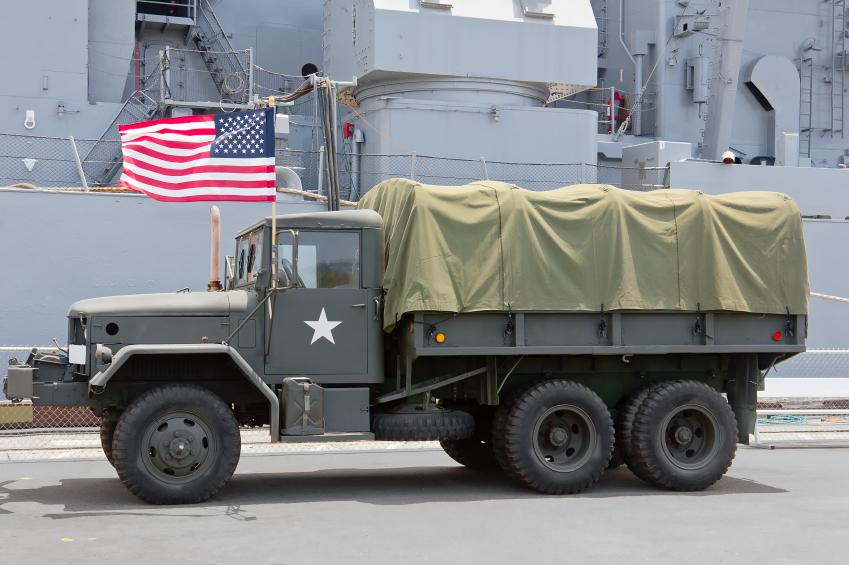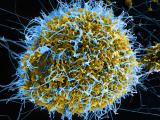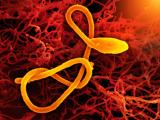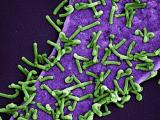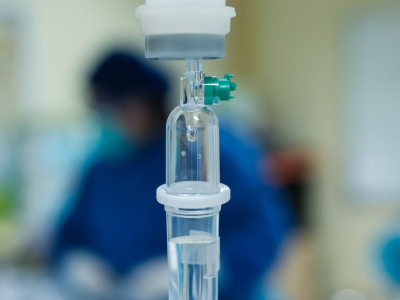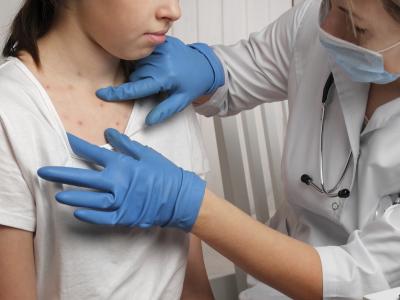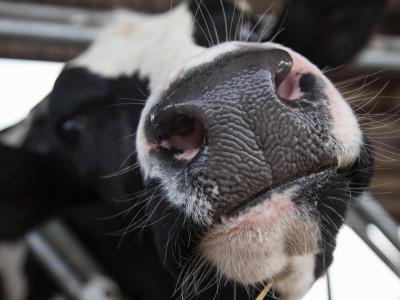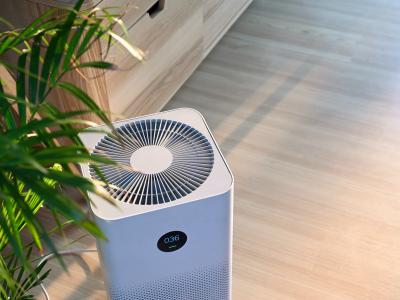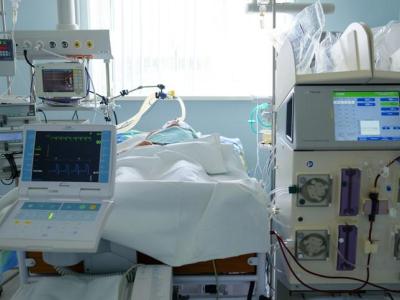The global response to West Africa's Ebola epidemic gained momentum and muscle today, led by a White House announcement that the United States will send 3,000 troops and establish a command post in Liberia's capital to help ease the flow of staff and supplies and to build urgently needed treatment centers.
Details about the latest US contribution came on a day when President Barack Obama met with staff at the Centers for Disease Control and Prevention (CDC) in Atlanta for a briefing and to discuss the Ebola virus disease (EVD) response. Meanwhile, the outbreak received high-level attention in Washington, DC, today, with some of the nation's top health officials testifying at a Senate joint committee hearing.
Before complete details of the White House plan were announced, Doctors without Borders (MSF) International President Joanne Liu, MD, referred to early word of a stepped-up US response at a United Nations (UN) briefing in Geneva today. She said since she put out an urgent appeal 2 weeks ago for more help, only a few countries have stepped forward to deploy more staff and resources.
Though she said she didn't have details on the new US commitment, "it shows that the US is willing to lead by example. Other countries need to follow."
Liu said the lack of international response is forcing infected patients back into the community because there isn't enough treatment capacity, and said though MSF manages 530 beds in five treatment centers in the outbreak countries, it is overwhelmed.
More countries must deploy civil and military assets to help contain the epidemic, she said. Large numbers of staff are needed to care for patients in isolation wards and tent hospitals that can be set up fairly quickly with straightforward logistics.
A UN official speaking to reporters in Geneva today put the price tag for fighting West Africa's Ebola outbreak at nearly $1 billion, more than double the estimate the group made a month ago, Agence France-Presse (AFP) reported. Valerie Amos, UN humanitarian chief, called funding a huge challenge and said the disease is poised to become a major humanitarian crisis in the affected countries.
Details of US plan
In an outline of the US response surge today, the White House called the humanitarian crisis in West Africa a top national security priority for the United States. It said the goals of US efforts are to control the epidemic at its source, blunt secondary economic, political, and social impacts on the region, coordinate with the broader global community, and strengthen the region's and the world's health security.
The administration said it will leverage US military and uniformed services to bring the epidemic under control, consisting of command and control capabilities, logistics, training, and engineering. Efforts will be based and staged at the US Africa Command in Monrovia, Liberia, led by a US Army general and involving 3,000 troops.
Engineers will build more Ebola treatment units, and the US government will recruit and organize medical workers to staff them.
The command center will establish a site for training as many as 500 healthcare providers per week who can safely administer care.
In addition, the US Public Health Service Commissioned Corps is getting ready to deploy 65 officers to Liberia to manage and staff a previously announced Department of Defense hospital in Liberia to treat infected healthcare workers.
As another way to disrupt transmission, the US Agency for International Development (USAID) will support a campaign to provide protection kits to communities and households, first targeting 400,000 of the most vulnerable households in Liberia. In a related move, USAID will airlift 50,000 home health care kits from Denmark to Liberia.
The Department of Defense has asked to reprogram $500 million in fiscal year 2014 overseas contingency funds to fulfill US agency objectives in curbing the outbreak.
After details of the US plan were announced, the World Health Organization (WHO) welcomed the contribution, which it said would support the UN and affected governments' efforts to contain the disease.
WHO Director-General Margaret Chan, MD, MPH, said in a statement, "This massive ramp-up of support from the United States is precisely the kind of transformational change we need to get a grip on the outbreak and begin to turn it around." The group added that the US commitment exemplifies the kind of international effort described in the recent Ebola control roadmap.
In other aid developments:
- Paul G. Allen, a philanthropist and one of the founders of Microsoft, yesterday announced two new efforts to support the outbreak response, at a cost of $6.6 million. They include $3.6 million in matching funds to help the United Nations Children's Fund (UNICEF) provide 50,000 protection kits to help Liberians prevent the spread of the disease in households. The other $3 million is targeted to establish an air bridge to ease the flow of supplies and staff to the outbreak region. The donations bring the foundation's contributions so far to $20 million.
- The WHO welcomed China's offer to send a mobile lab team to Sierra Leone to help the country test for EVD. In a statement, the WHO added that China's Center for Disease Control (China CDC) is sending a 59-person team of epidemiologists, clinicians, and nurses to assist with response efforts at China-Sierra Leone Friendship Hospital.
- Canada's government yesterday announced a donation of more than $2.5 million in personal protective equipment.
Senate panel hears from feds, West Africa responders
Senate members met today in an unusual joint committee hearing to hear from federal health officials and two people who have been battling the outbreak in the affected countries: Kent Brantly, MD, an EVD survivor who got sick while working in Liberia for Samaritan's Purse, and Ishmael Alfred Charles, a program manager for the US-based aid group Healey International Relief Foundation in Sierra Leone.
The Senate committees would be responsible for authorizing and funding the US Ebola response activities. They are the Senate Committee on Health, Education, Labor, and Pensions and the Committee on Appropriations.
Several senators praised the CDC's work so far on the outbreak, but raised concerns about leadership of the US EVD response, given its wide scope and the number of government agencies involved. Barbara Mikulski, D-Md., brought up the possibility of naming a point person to direct all US Ebola response efforts.
The group voiced strong bipartisan support for a strong government response to the epidemic. Jerry Moran, R-Kan., said, "We need to declare a war on Ebola. We have the ability to change the lives of people who are affected."
Senators also had questions about the scope of the outbreak, the countermeasures under development, and whether the virus could change to become a bigger threat.
Beth Bell, MD, MPH, director of the CDC's National Center for Emerging and Zoonotic Diseases, standing in for director Tom Frieden, MD, MPH, today, said true case numbers are considerably higher than official counts, perhaps two to three times higher. She added that the outbreak has already eroded weak health systems and is threatening the economic and political stability of the nations.
Though Ebola is not considered a disease threat to the United States, the nation has the tools to stop the outbreak from accelerating, she said. "The best way to protect the US is to stop Ebola in West Africa."
Anthony Fauci, MD, director of the National Institute of Allergy and Infectious Diseases (NIAID), said anecdotal reports hint that the experimental drug ZMapp, a combination of three antibodies that has been used to treat seven patients so far, is helpful. However, he added that it's important to follow through with clinical trials to understand if it truly works.
When asked about the chance of mutations that would make the virus more transmissible, Fauci said such a change isn't impossible, but it's unlikely. He said gene sequencing studies are underway at the Broad Institute, based at MIT and Harvard University, to monitor isolates for any changes. He added that improved infection control practices will play the most important role in curbing the epidemic, which also reduces opportunities for the virus to replicate.
Senators asked federal health officials how funding issues are affecting response activities. Lawmakers are currently considering an $88 million continuing resolution request from the Obama administration to fund outbreak response for a few months beyond the end of the fiscal year.
Bell told legislators that $30 million earmarked for the CDC should keep its outbreak tasks going until then, and Robin Robinson, PhD, director of the Biomedical Advanced Research and Development Authority (BARDA), said the $58 million earmarked for Ebola countermeasure development and trials will get the agency through the fall.
Brantly and Charles provided a dramatic and poignant glimpse of the situation on the ground in two of the three outbreak countries. Brantly aired frustration about the slow international response to the outbreak. As cases escalated throughout the summer and equipment and supplies wore thin, "Our pleas fell on deaf ears," he said.
The world didn't seem to take notice until two US missionaries were infected, Brantly said. He said the world was "sluggishly and unacceptably out of step with the size and scope of the outbreak."
Brantly was the first person to receive one of the few doses of the experimental drug ZMapp, and though he said it likely helped him, the world can't wait for a magic bullet, and it's time to think outside the box.
For example, he said home care of Ebola patients has been a controversial topic, because the conventional wisdom is to get sick people into treatment centers where they can get care and be prevented from spreading the disease in their communities. However, there are not enough beds to care for patients, and though home care isn't ideal, an option is giving caregivers training and materials to protect themselves while taking care of their sick loved ones.
Charles said the burden on outbreak countries is growing day by day, as businesses languish and people lose their jobs. Sierra Leone has an illiteracy rate of 70%, yet schools have been closed indefinitely because of the outbreak, he added. He urged US lawmakers to provide the kind of support that will make the countries self-sufficient.
Outbreak case total approaches 5,000
In an outbreak update today, the WHO said the number of EVD infections is at 4,963, with 2,453 deaths reported so far. The numbers are as of Sep 13 for Sierra Leone and Guinea and as of Sep 9 for Liberia. Health officials have said the official numbers are probably a dramatic underestimate.
Liberia is the hardest hit country, accounting for 2,407 infections, 1,296 of them fatal. The WHO said a large portion of cases have occurred in the past 21 days in all three countries. Guinea reported one suspected and one confirmed case in Dalaba district, which has not reported a case before.
Contact tracing in two countries that had imported cases—Nigeria and Senegal—is still underway. The WHO said 402 contacts are still being monitored in Nigeria and 74 people are still under surveillance in Senegal.
In other outbreak news, the WHO announced today that its Ebola emergency committee will meet for the second time. The discussion will be held by e-mail this week, and members will review the status of the epidemic and assess if temporary measures are having an impact on it.
After its first meeting in early August, the emergency committee said the EVD developments met the definition of a public health emergency of international concern. (PHEIC)
See also:
Sep 16 White House fact sheet
Sep 16 HHS statement
Sep 16 AFP story
Sep 16 CDC statement
Sep 16 WHO Ebola roadmap update
Sep 16 WHO statement on Chinese contribution
Sep 16 UN briefing remarks from MSF international president
Sep 15 Paul G. Allen Family Foundation statement
Sep 15 PHAC press release
